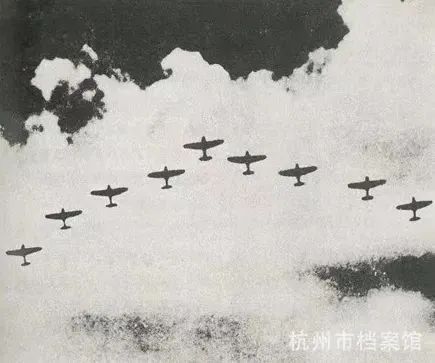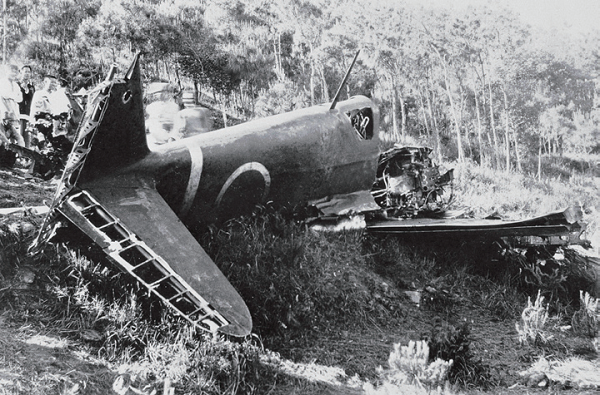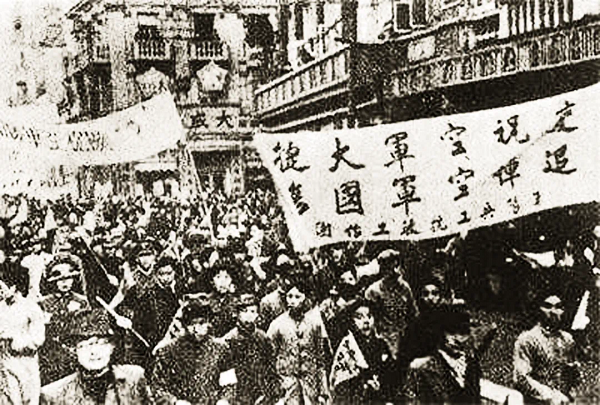Jianqiao Airport, a witness to China's first air victory in war of resistance

Fighters from China's Air Force Fourth Air Group head out to battle. [Photo/WeChat account: hzda_gf]
The Hangzhou Municipal Archives holds a rare collection documenting the Battle of Jianqiao, or the 814 Aerial War — the first major air victory in China's War of Resistance Against Japanese Aggression (1931-45) and a milestone in the history of Jianqiao Airport.
Before the war, Jianqiao Airport in Hangzhou — capital of East China's Zhejiang province — was one of China's few first-class airports and the central base of the Chinese Air Force.
After the Battle of Shanghai broke out on Aug 13, 1937, Hangzhou became a vital rear base — supplying the front lines and posing a significant threat to Japanese forces through the air units stationed at Jianqiao.

A Japanese fighter is shot down. [Photo/WeChat account: hzda_gf]
On Aug 14, 1937, the Japanese Navy Air Service launched a surprise attack on the airport. Gao Zhihang, commander of the Air Force's Fourth Air Group, led 27 fighter planes from three squadrons into fierce combat. After intense fighting, Chinese pilots shot down three Japanese aircraft, severely damaged two and lightly damaged four — without a single Chinese casualty.
The battle, fought over Jianqiao's skies, was the first large-scale air engagement between Chinese and Japanese forces, shattering the myth of Japanese air invincibility.
In recognition of Gao's leadership, the unit was named the Zhihang Group and Aug 14 was designated as Air Force Day during the Republic of China times.
This decisive victory not only boosted the morale of China's airmen, but also strengthened the nation's resolve to resist Japanese aggression.

Hangzhou residents celebrate the victory of China's Air Force. [Photo/WeChat account: hzda_gf]
-
Echoes of Romance from East to West
August 12, 2025
-
Nine Hangzhou-based companies make Fortune Global 500 list
July 30, 2025
-
City built on water: Hangzhou's wetland legacy goes global
July 25, 2025
-
Visionary Pathway - Hangzhou Playbook
July 15, 2025



